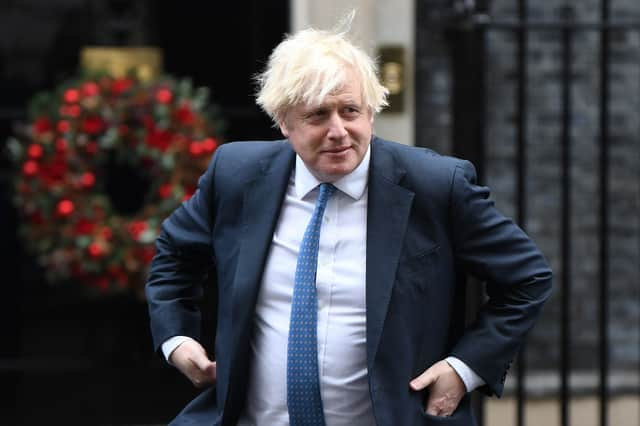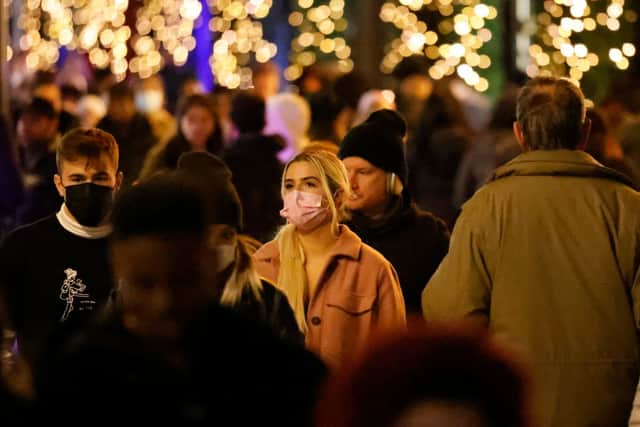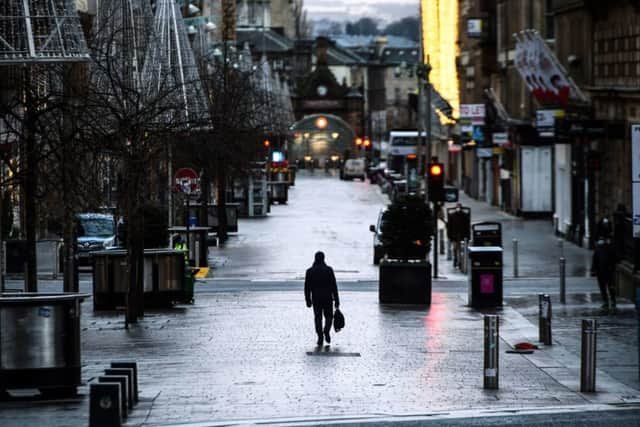PM may trigger Covid Plan B ‘in days’ in bid to save Christmas
This article contains affiliate links. We may earn a small commission on items purchased through this article, but that does not affect our editorial judgement.


The Prime Minister Boris Johnson could be set to introduce stricter Covid rules in the coming days in a bid to save Christmas, national news outlets have reported.
Stricter Plan B measures could be brought in, months after health bosses first started calling for them to be introduced, according to Sky News and The Sun.
Sky said this action could come as soon as this week.
Advertisement
Hide AdAdvertisement
Hide AdMeanwhile, the prospect of vaccine passports for people in England has emerged once more, The Times has written.
The news comes despite Justice Secretary Dominic Raab telling broadcasters yesterday (8 December) that tougher rules were not needed “because of the success of the vaccine programme”.
However, NationalWorld has revealed that the coronavirus booster programme has slowed down since Omicron emerged.
Scotland’s First Minister Nicola Sturgeon has already called for Scots to work from home as much as possible from now on.
What could happen?
Advertisement
Hide AdAdvertisement
Hide AdThe newspapers have said that Downing Street is currently looking at modelling for how Covid-19 could be suppressed by stricter measures.
While officials have denied plans are afoot to bring in tougher rules, Sky News said it has been told by officials Mr Johnson could implement Plan B as early as this week.
The Sun has also reported that Boris Johnson told his Cabinet “early indications are that it is more transmissible than Delta”.
But Mr Johnson has also said that there is no conclusive evidence yet to show that Omicron is worse than other variants.


Advertisement
Hide AdAdvertisement
Hide AdUnder the Government’s winter Covid Plan B, people would be asked to work from home and vaccine passports could be introduced across England - a measure that is already in place in Scotland.
However, The Times has reported that the Cabinet is divided over the prospect of vaccine passports.
Mandatory mask-wearing - another part of Plan B - was brought back for the first time in months last week.
Omicron on the rise
The news comes after a member of the Scientific Advisory Group for Emergencies (Sage) said a UK-wide lockdown to deal with the threat of the Omicron variant should not be ruled out.
Advertisement
Hide AdAdvertisement
Hide AdProfessor Neil Ferguson, from Imperial College London, said the variant is concerning but it is still unknown what its impact will be on severe disease.
Speaking to BBC Radio 4’s Today programme, he said the peak of the Omicron wave would be in January, should the Government not take any further action to halt the spread of coronavirus.
“I think the key question is whether the country decides to adopt measures to either slow it down or try to stop it, and that will critically depend on the threat it poses in terms of hospitalisations,” he said.
“At the moment, we don’t really have a good handle on the severity of this virus; there’s a little hint in the UK data that infections are a little bit more likely to be asymptomatic, but we really need to firm up that evidence at the current time.”


Advertisement
Hide AdAdvertisement
Hide AdAsked whether people should be told to work from home, he said: “It will be up to the Government to decide what to announce in the coming days and weeks.
“There is a rationale, just epidemiologically, to try and slow this down, to buy us more time principally to get boosters into people’s arms, because we do think people who are boosted will have the best level of protection possible, but also to buy us more time to really better characterise the threat.
“So, if you imagine a kind of Plan B Plus with working from home might slow it down – it wouldn’t stop it but it could slow it down, so it’s doubling rather than every two or three days, every five or six days.
“That doesn’t seem like a lot, but it actually is potentially a lot in terms of allowing us to characterise this virus better and boost population immunity.”
Advertisement
Hide AdAdvertisement
Hide Ad336,893 new Covid-19 cases were reported over the past seven days - the highest number of infections since the week to 16 January 2021.
This figure included 45,691 new cases on Tuesday (8 December).
Official statistics also showed 101 additional cases of the Omicron variant have been reported across the UK, with the total now sitting at 437.